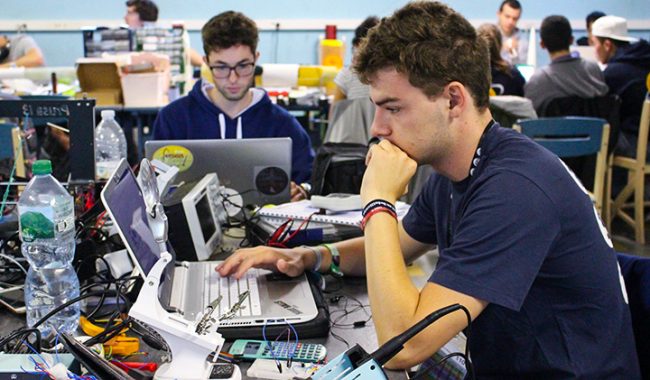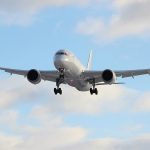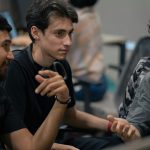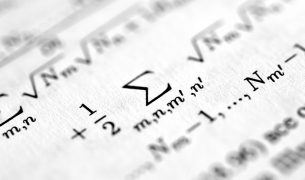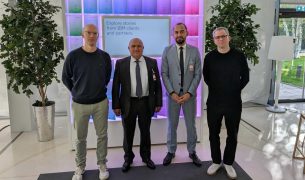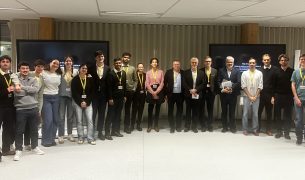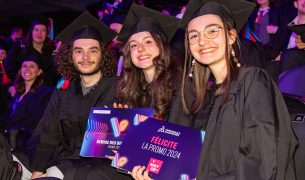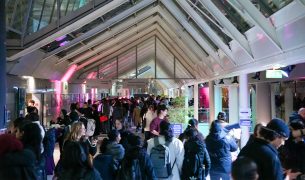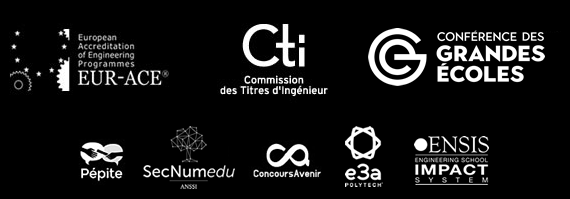Still passionate as ever, ESILV students keep up their associative projects. While waiting for the 2020-2021 academic year to start, there are even more initiatives in the works within LeoFly, the aeronautics and aerospace student association of the Pole Leonard de Vinci. Six student projects are ongoing this year.
LeoFly’s objective is to uncover to the students of the three schools aeronautics and aerospace. These fields, primarily related to engineering, involve various business aspects, such as management and communication. The associative projects enable engineering students to use their passion for developing their technical and cooperation skills. This year, the aeronautics and aerospace association carries out six professional projects.
Simulation Cockpit Project (V4)
Since its first version, released in June 2017, the Leofly cockpit keeps improving. For the issue of the V4 simulator, the 2-nd and 3-rd year students from the integrated preparatory classes will have to comply with a full set of rules:
- Implementation of a screen that provides a 300-degree view
- Design of cockpit parts
- Development of the flight control systems
- Communication between electronics and software
- Aesthetic fidelity
Smart flying wing (SmartWing)
The SmartWing, a hand-launched autonomous flying wing for terrain survey, aims to follow a specific itinerary defined by the user’s GPS data, then avoid obstacles and finally land. The software will be in charge of carrying out a topographical survey or other data during its cruise and doing a telemetry-based data transmission. Open to 3rd and 4th-year students, the project’s objectives are to:
- Optimize the design
- Integration
- Manufacture a composite prototype
- Produce measuring and control systems
- Manage data storage and interpretation
PERSEUS Project
PERSEUS (European Space Research Program for Students, an acronym for Projet Étudiant de Recherche Spatiale Européen Universitaire et Scientifique) is an initiative of CNES’s launchers direction. This year, several places are open to 4th and 5th-year ESILV students. The following teachings and experiences are at the heart of the project:
- Launch systems
- Studies and software
- Electrical systems
- Ground demonstrations
- Flight demonstrations
Aerodynamic wind tunnels project (PulvSstream)
The Eolia project is about ten years old. It gives higher education institutions the possibility to equip themselves with an educational wind tunnel, allowing them to approach aerodynamics in its essential aspects. As a part of this project, 3rd and 4th-year students will build two wind tunnels:
- A wind tunnel of 4.5 m usable for student practical work, which will allow different types of airflows
- A functional model of 1.70 m which allows: fluid speed control, fluid visualization and sensor tests
C’space 2021 Project
For more than 50 years, C’Space has been an opportunity for aerospace enthusiasts to design and build experimental rockets and miniature rockets incorporating onboard scientific experiments. This multidisciplinary project shared by numerous engineering schools takes shape during launching campaigns planned each year at C’Space, on the Ger military camp, near Tarbes.
For the next launching campaign, postponed to the summer of 2021, two Fusex and Minif teams are open to 2nd, 3rd and 4th-year students. The C’space 2021 experimental rocket project includes the following stages:
- Modelling and dimensioning
- In-flight data acquisition
- Designing an innovative embarked experience
- Autonomous electronic sequencing
- Machining and composites
Reduced resilient model project (FireBolt)
As a part of this glider project, students in the preparatory cycle will contribute to the design and production of a 1/10th glider, the creation of several prototypes, the maximisation of gliding distance and the automation of flight.
- Manufacture and design
- Build several prototypes
- Maximise the gliding distance
- Flight automation
More info on LeoFly?>> https://www.facebook.com/LeoFlyPULV/









